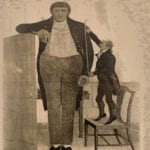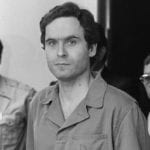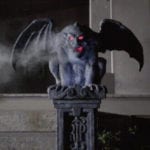 Movies and TV
Movies and TV  Movies and TV
Movies and TV  Our World
Our World 10 Places with Geological Features That Shouldn’t Exist
 Crime
Crime 10 Dark Details of the “Bodies in the Barrels” Murders
 Animals
Animals The Animal Kingdom’s 10 Greatest Dance Moves
 Movies and TV
Movies and TV 10 Box Office Bombs That We Should Have Predicted in 2025
 History
History 10 Extreme Laws That Tried to Engineer Society
 History
History 10 “Modern” Problems with Surprising Historical Analogs
 Health
Health 10 Everyday Activities That Secretly Alter Consciousness
 History
History Top 10 Historical Disasters Caused by Someone Calling in Sick
 Animals
Animals 10 New Shark Secrets That Recently Dropped
 Movies and TV
Movies and TV 10 Weird Ways That TV Shows Were Censored
 Our World
Our World 10 Places with Geological Features That Shouldn’t Exist
 Crime
Crime 10 Dark Details of the “Bodies in the Barrels” Murders
Who's Behind Listverse?

Jamie Frater
Head Editor
Jamie founded Listverse due to an insatiable desire to share fascinating, obscure, and bizarre facts. He has been a guest speaker on numerous national radio and television stations and is a five time published author.
More About Us Animals
Animals The Animal Kingdom’s 10 Greatest Dance Moves
 Movies and TV
Movies and TV 10 Box Office Bombs That We Should Have Predicted in 2025
 History
History 10 Extreme Laws That Tried to Engineer Society
 History
History 10 “Modern” Problems with Surprising Historical Analogs
 Health
Health 10 Everyday Activities That Secretly Alter Consciousness
 History
History Top 10 Historical Disasters Caused by Someone Calling in Sick
 Animals
Animals 10 New Shark Secrets That Recently Dropped
10 Terrifying Real-Life ‘Cabin In The Woods’ Murders
The isolated cabin in the woods is a staple of the horror genre—Friday the 13th, Cabin Fever, The Evil Dead, and, of course, The Cabin in the Woods. It is a haunting setting for a murder because you never know what may be lurking outside your cabin in that isolated place. And that is exactly the horror that the people on this list experienced.
10The Blue Mountain Shootings

Most people get nervous about the idea of an isolated cabin because a murderer could come in at any time, but what if the killer is already living there with you? One such case happened around midnight on October 2, 2013, in Oregon’s Blue Mountains. Fourteen-year-old Dillan Dakota Easley had been staying in a hunting cabin with his foster father, his foster father’s uncle, and two other men. Easley had a history of mental issues after years of abuse, and he said that he became frightened and shot both his foster father and the man’s uncle, killing the two men.
After shooting the men, Easley tried to run away, but in the process, he shot himself in the leg and had to return to the cabin. The other two men in the cabin held him at gunpoint and taped him to a chair. He was arrested and given 20 years in prison, but there was a cap at the age of 25, effectively making his sentence 10 years for the two killings.
9The Murder Of Barbara King
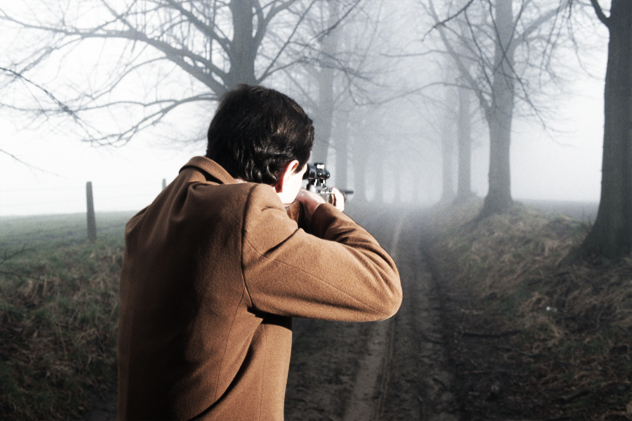
On Friday July 1, 1960, the King family drove from their home in Birmingham, Alabama, to their cabin on the shore of Lake Martin. On July 3, at around dusk, nine-year-old Barbara King was playing outside and was setting off fireworks with her father. She had just lit one off a burning cigarette that her father was holding when a shot rang out and a bullet entered King’s face and blew off the back of her head.
The police were called, and it was ascertained that the shot came from the direction of a neighbor, 41-year-old John Wilbanks, who had a cabin about 90 meters (300 ft) away. Wilbanks denied that he fired the fatal shot, although it was determined that the shot was fired from his gun. Since he proclaimed his innocence, it’s unclear if it was an accident or if he intentionally shot the little girl in the face. He was given nine years in prison for voluntary manslaughter.
8The Akeman Murders
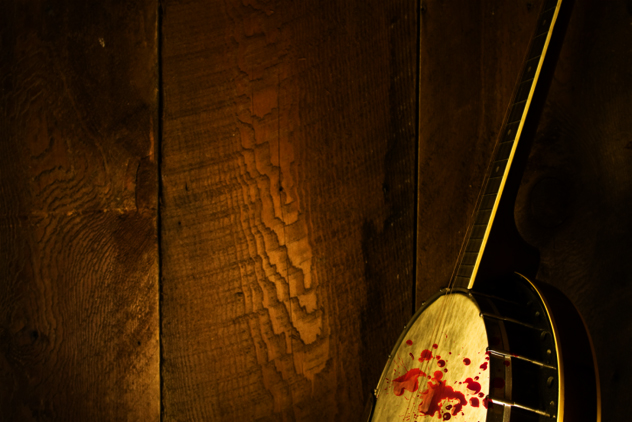
Dave “Stringbean” Akeman was a banjo player who was best known for appearing on the television show Hee Haw. He also played in the Grand Ole Opry, which was a live weekly radio concert that was performed in Nashville, Tennessee. Akeman and his wife, Estelle, lived in a small, humble cabin that only had outdoor plumbing in Ridgetop, Tennessee. On the night of November 10, 1973, two cousins—John Brown and Doug Marvin Brown, both 23—broke into the house while the couple was at Akeman’s Grand Ole Opry performance. The cousins tore apart the home because they’d heard that Akeman had hidden money in the cabin. They also listened to the Grand Ole Opry because that would give them a time frame for when the couple was on their way home.
When the Akemans did come home, the intruders shot 57-year-old Dave first and then shot Estelle as she begged for her life. After all the carnage that happened in the cabin, the Browns still couldn’t find the money and ended up taking a chainsaw and some guns. The money wasn’t found until 20 years later; it had been hidden in the chimney of the cabin.
The Browns were arrested and, at the trial, the cousins blamed each other for the murders. Both Browns were given two life sentences. Doug Marvin Brown died in prison in 2003, and on November 3, 2014—just a week before the 41st anniversary of the murders—John Brown was granted parole.
7The Brooks Murders

Seventy-year-old Paul Brian Brooks and 69-year-old Margaret Susan Brooks, a retired couple, were staying in their cabin near Table Rock Lake in Missouri. Unknown to the couple, 15-year-old Christopher Allen and 16-year-old Anthony Zarro, two runaways from a nearby at-risk youth camp, had broken into a nearby cabin and had been squatting there for a few days. On January 29, Allen and Zarro broke into the Brooks’s cabin and attacked the couple. They beat them with a baseball bat and stabbed them to death.
Allen and Zarro were stopped by a neighbor from a nearby cabin who saw them loading up stuff stolen from the cabins into the Brooks’s car. He held them at gunpoint until the police arrived. The young runaways were arrested and will be tried as adults when they go to trial in 2015.
6The Russell Murders
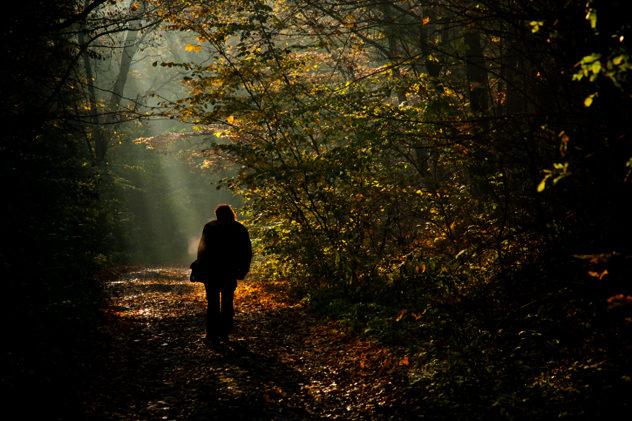
On July 10, 1996, 45-year-old Lin Russell picked up her two daughters, nine-year-old Josie and six-year-old Megan, from school. They were last seen walking into the woods that led to their secluded cottage home in Kent, England. By 10:45 PM, Shaun Russell, husband of Lin and the father of Josie and Megan, called the police to say that his family hadn’t come home that night. The police searched the area and found the bodies of Lin, Josie, Megan, and the family dog a short distance away from the house in a copse of trees. They had been attacked with a hammer, and their bodies had been left out in the open. The attack was so bad that Shaun was initially told that they’d all been murdered, but miraculously, nine-year-old Josie survived the attack and would go on to make a remarkable recovery, although she now has impaired speech.
A year after the brutal attack, a reconstruction of the crime appeared on BBC’s Crimewatch UK, and a short time later, 38-year-old Michael Stone was arrested. He was first convicted in 1998, but that was overturned because a jailhouse snitch admitted that he’d lied while giving testimony. In 2001, he was re-tried, and this time he was found guilty and given three life sentences. There was no physical evidence connecting Stone to the crimes, and he maintains his innocence to this day.
5The McDowell Family Murder
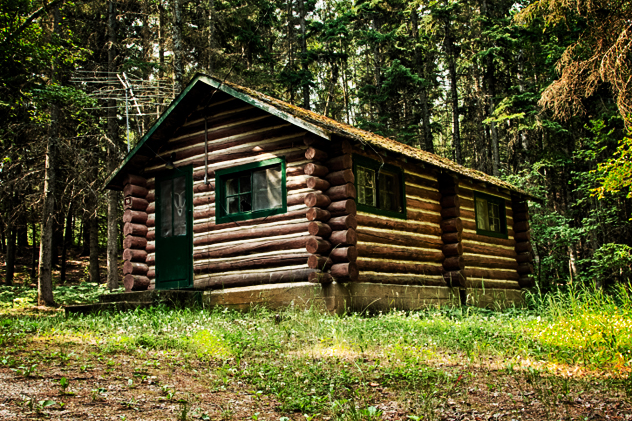
In June 1989, the McDowell family, which consisted of 59-year-old Robert, 48-year-old Elizabeth, 23-year-old Eben, and 22-year-old Daniel, were staying with grandfather, 73-year-old Charles Klepetar, in a cabin in the woods in Stamford, New York. On June 22, Eben left the cabin, drove to his father’s office, and left a note on the door. Eben then drove back to the cabin and, once there, he took a shotgun and shot every family member to death. His grandfather was found in his bed, his brother and father were found near a pond on the property, and his mother’s body was found in the pond.
Meanwhile, someone visiting the office found the note on the door, which had been written to make it look like Robert had committed the murders. Using a helicopter, the police tracked Eben to another pond a little ways down the road. Police confronted him, and a standoff ensued. After about six hours, Eben started firing and the police returned fire, killing him.
Eben had been diagnosed with schizophrenia, and he’d previously had violent episodes. In one incident, Eben had attacked his father with an axe. Due to his episodes, he had been hospitalized a number of times prior to the murders.
4The Henry Cowell Redwoods State Park Murders

In February 1973, four teenage boys—18-year-old David Oliker, 15-year-old Mark Dreibelbis, 18-year-old Robert Spector, and 19-year-old Brian Card—were camping in a solidly built makeshift cabin in Henry Cowell Redwoods State Park in California. On February 6, the four of them came across a man who said that what they were doing was illegal. He told them to leave, but they didn’t believe him. When they didn’t clear out, the man shot them all with a small-caliber gun. Their bodies were found four weeks later.
It turns out the killings were the work of serial killer Herbert Mullins. Starting in October 1972 and ending with his arrest just a week after the cabin murders, Mullins killed 13 people. Mullins said that voices in his head told him that he had to kill people to prevent an earthquake in California. He pleaded not guilty by reason of insanity but was found guilty and given life in prison.
3The Tiede Cabin Murders
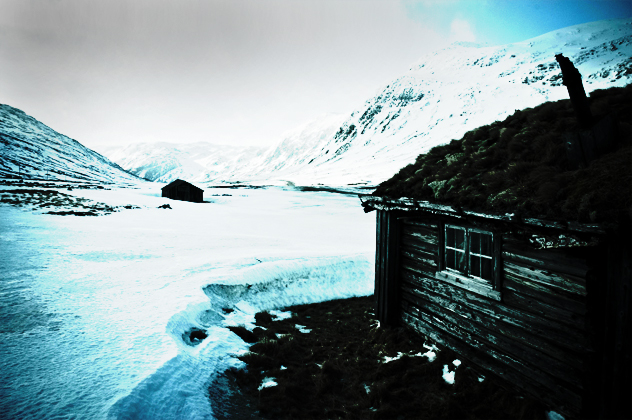
In December 1990, the Tiede family of Houston traveled to a cabin in the Utah mountains to visit 71-year-old Beth Harmon Tidwell Potts, mother of 51-year-old Kay Tidwell Tiede, mother-in-law to 51-year-old Rolf Tiede, and grandmother to 20-year-old Linae and 16-year-old Trish Tiede. The isolated cabin was off-road and the only access in the winter was via snowmobile.
On December 23, the Tiedes were out running some Christmas errands. Around 3:30 PM, Linae, Kay, and Beth returned to the cabin to find two strange men in the house. The men were 25-year-old Lester Taylor and 21-year-old Edward Deli. The two men were on parole and were living in a halfway house that they had walked away from. They had broken into the cabin earlier that day, eaten the family’s food, and videotaped themselves opening the family’s Christmas presents.
Without saying anything, Taylor shot Kay and Beth, killing them in front of Linae. The men then took Linae hostage. Outside, Trish and her father arrived by snowmobile. Deli was outside wearing a ski mask waiting for them. At gunpoint, he led them into the house. Inside, Taylor ordered Deli to shoot Rolf. When he didn’t, Taylor pulled the trigger twice before a bullet fired on the third squeeze and flew into Rolf’s face.
Taylor and Deli then poured gasoline around the cabin, set it on fire, and made the two young women drive them away on the snowmobiles. Amazingly, Rolf survived the shooting, crawled out of the burning cabin, and made it to his snowmobile. He found his brother driving up to the cabin, and they alerted the police.
The police gave chase to Taylor and Deli, who were now in the family’s car with their hostages. During the high-speed chase, they slid into an embankment and were soon arrested. Linae and Trish were unharmed, and Rolf survived the whole thing. Taylor was sentenced to death and Deli got a life sentence.
2The Torreon Cabin Murders

It is believed that on the night of December 12, 1996, four men broke into a cabin in the mountains near Albuquerque, New Mexico. They shot 23-year-old Cassandra Sedillo and her boyfriend, 17-year-old Ben Anaya, while they slept. After murdering the couple, the killers locked up the cabin and left. The problem was that Sedillo’s two young sons, who were three and four years old, were left alive, but with their mother and her boyfriend dead, they were left alone in the isolated cabin to fend for themselves. They died weeks later from hunger and thirst. The bodies weren’t found until April.
Four men were arrested for the murders, and Lawrence Nieto, who was the apparent gunmen, was given 39 years in prison. Since being imprisoned, he has been mistakenly released twice due to a clerical error but was picked up again both times. He can apply for parole in 2022. Another man involved with the crime was given 15 years, while the trials for the other two men ended in a mistrial.
1The Good Hart Murders

In the summer of 1968, the Robison family was staying in a simple log cabin on the shores of Lake Michigan in the northern woods of Good Hart, Michigan. It was a secluded cabin that couldn’t be seen from the road. As evening approached on June 25, 1968, semi-automatic rifle rounds were fired through a window at family patriarch Richard Robison. The shooter then came through the back door and shot five of the six family members in the head, then bludgeoned the youngest daughter. The bodies were then staged to make it look like the motive for the massacre was sexual assault. After killing all the family members, the killer locked the doors and left. The bodies were found 27 days later and had deteriorated terribly in the July heat.
The murders shocked the small community of Good Hart and forever changed the perception of the North Woods. It is believed that Joseph Raymond Scolaro III, a business partner of Richard Robison’s, killed the family. He was charged in 1973, but when police went to arrest him, they discovered that he had killed himself with the handgun that was used in the murders. Despite the evidence again Scolaro, the case remains open.
Robert Grimminck is a Canadian freelance writer. You can friend him on Facebook, follow him on Twitter, or visit his website.


